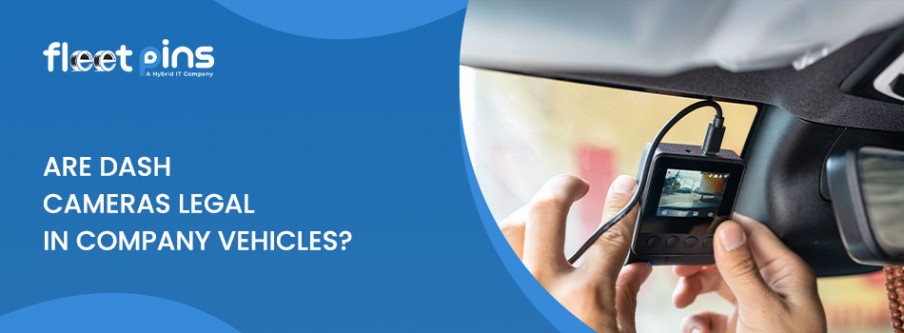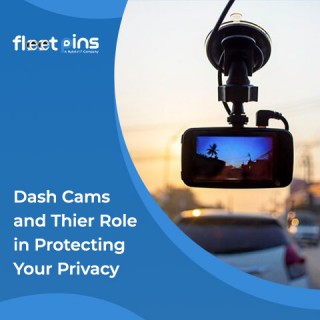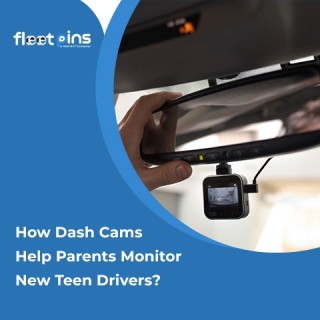
- On 2024-09-02
Does Dash Cam Record Audio Inside the Car? Legal Guide
Dash cams are becoming increasingly popular in vehicles around the world. They are commonly used to record video footage of the road ahead, but many dash cams also have the capability to record audio inside the car. This feature can be useful for various reasons, but it also raises questions about privacy, legality, and practicality. Let's discuss does dash cam records audio inside the car and what you should consider when using this feature.
What is a Dash Cam?
A dash cam, short for a dashboard camera, is a small recording device that mounts inside a vehicle, usually on the windshield or dashboard. It continuously records video footage while the vehicle is in motion, capturing everything happening on the road and sometimes inside the car. The primary purpose of a dashcam is to provide evidence in the event of an accident, but it can also be useful for monitoring driver behavior, protecting against theft, and documenting road trips.
Does a Dash Cam Record Audio?
Yes, many dash cams come equipped with built-in microphones that can record audio inside the car. This audio dash cam recording feature can be activated or deactivated based on the user's preference. The microphone usually picks up conversations and sounds within the car, which are recorded alongside the video footage.
Benefits of Recording Audio Inside the Car
Recording audio inside the car can provide several benefits:
Additional Evidence in Case of an Accident:
Audio recordings can provide context to the events leading up to an accident. For example, the recorded conversations or sounds could indicate whether there was a distraction inside the vehicle, such as a loud noise or an argument.
Driver Monitoring:
For fleet management or rideshare drivers, recording audio can help monitor driver behavior. It can be used to ensure that drivers are following company policies, such as not using their phones while driving or not engaging in inappropriate conversations with passengers.
Protection Against False Claims:
In some situations, having an audio recording can protect drivers against false accusations. For example, if a passenger claims a driver said something offensive or inappropriate, the audio recording can be reviewed to verify the claim.
Personal Safety:
In rideshare or taxi services, audio recordings can provide an additional layer of security for both the driver and passengers. Knowing that conversations are being recorded can deter inappropriate behavior.
You May Also Read: What is Loop Recording on a Dash Cam? Essential Guide and Benefits
Privacy Concerns of Dash Cam Auto Record
While recording audio can have its benefits, it also raises significant privacy concerns:
- Invasion of Privacy: Passengers may feel uncomfortable knowing their conversations are being recorded. This can be seen as an invasion of their privacy, especially if they are unaware that the recording is taking place.
- Legal Implications: In many jurisdictions, recording audio without consent is illegal. For example, in some states in the United States, all parties involved in a conversation must consent to be recorded. Failing to obtain consent could result in legal consequences for the driver or vehicle owner.
- Sensitive Information: Conversations inside a car may involve sensitive or personal information. Recording such conversations without the participant's knowledge or consent could lead to a breach of confidentiality.
Privacy Concerns of Recording Audio
The legality of recording audio with a dash cam varies by country and even by state or region within a country. Here are some general guidelines:
In some places, only one person involved in a conversation needs to consent to the recording. This means that if you are driving and have a dash cam recording audio, you do not need the consent of passengers. In other places, all parties involved in a conversation must consent to the recording. This means that if you have passengers in your car, you need to inform them that the dash cam is recording audio and obtain their consent.
Some jurisdictions prohibit recording audio in vehicles altogether, regardless of consent. It is important to check the local laws in your area before using a dash cam to record audio.
Privacy Concerns of Recording Audio
If you choose to record audio, be transparent with passengers. Inform them that audio is being recorded and explain why. This can help alleviate privacy concerns and ensure compliance with local laws. The quality of the audio recording can vary depending on the dash cam model and the placement of the microphone. Background noise, such as the sound of the road or the car's engine, can also affect the clarity of the recording.
Recording audio along with a video can consume additional storage space on the dash cam’s memory card. Make sure your dash cam has sufficient storage capacity, especially if you plan to record long trips or keep extensive records. Consider why you want to record audio. If the primary purpose is for security or monitoring, ensure that the benefits outweigh the potential privacy concerns and legal risks.
You May Also Read: How to Format an SD Card for Dash Cam?
Select a Suitable Cam from a Wide Range of Fleet Pins
Choosing the right dash cam from Fleet's extensive range can significantly enhance dash cam recording. Whether you need basic front-facing cameras for straightforward monitoring or dash cam recording audio inside the car, Fleet Pins offers a variety of options tailored to meet diverse needs.
Consider factors such as vehicle type, desired features, and budget to select a dash cam that not only fits your operational requirements but also provides reliable, high-quality footage for better fleet management and driver safety.
Conclusion
Dash cams with audio recording capabilities can offer valuable benefits, such as providing additional evidence in accidents, monitoring driver behavior, and protecting against false claims. However, it is essential to consider the privacy concerns, legal implications, and practical aspects of recording audio inside the car. Always check local laws regarding audio recording and ensure that all parties are informed and consent to the recording to avoid any legal issues.




